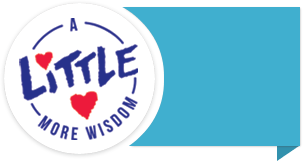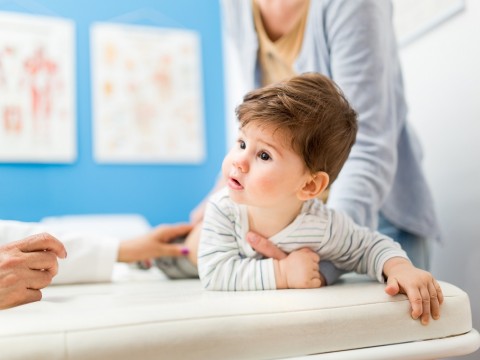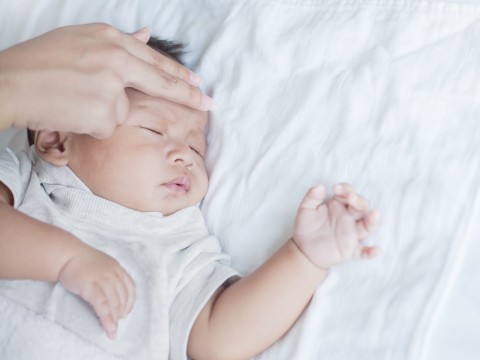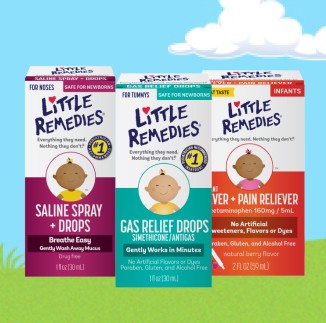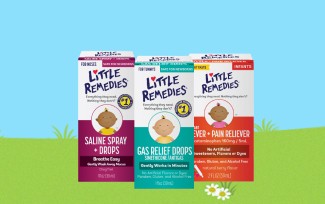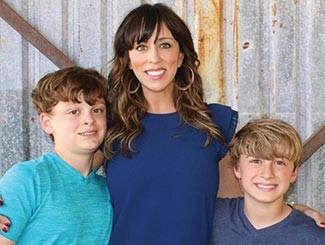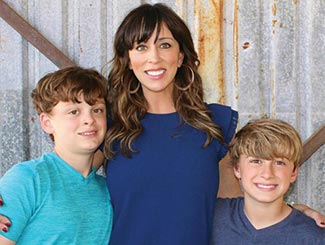
Smiling. Laughing. Squealing with delight. Your baby is a chatty social butterfly these days who loves “conversations” and likes “chatting” with people. She is more aware of the world around her and she finds new ways to engage with it on a daily basis.
During the next three months of life, your baby will continue to blossom into an active little person. She’s growing and changing in every aspect of her “baby” ways: baby brain development, baby fine motor skills, baby gross motors skills – not to mention she’s probably quite an armful! Let’s take a look at what’s in store for you and your baby from 3-6 months old.
Physical Growth
By now your baby probably weighs 13-17 pounds. That infant baby carrier will start to feel much heavier in the coming months. Think of it as part of your fitness routine! If she’s sitting up by herself, she’s ready to try “solid” food in addition to breast milk and/or formula. Check out feeding tips about introducing baby to first foods. If you check closely, you can see “buds” under her gum line, which is the first sign of baby teeth.
Baby Motor Skills
As your baby grows and gets stronger, she’s also developing coordination. All of these developing motor skills will help her crawl and eventually walk, run, skip and jump. During these three months you’re probably seeing motor skills like rolling over from front to back, lifting her head and chest when she’s on her tummy, holding objects for a brief period of time, bringing objects to mouth from hand, and waving her arms and legs during tummy time.
What Baby is Hearing & Seeing
Your baby’s hearing and eyesight are also growing stronger and more precise. She can recognize voices now, and if she hears someone familiar, she can turn her head to look toward the voice. She can follow movement with her eyes, so she will watch you walk across a room. If you hold an object in front of her, she can “inspect” it, which means she is noticing and seeing small details.
How Baby Communicates
One of the most exciting aspects of infant development is when she starts to talk. Babies make some hilariously entertaining sounds during 3-6 months. They coo and gurgle and will often repeat sounds they hear you make. This is when you may start to hear “dada” or “mama.” It’s important to talk to your baby – even if you feel silly doing it! -- because it helps her practice listening skills and verbal language skills.
Type of Play That Promote Baby Development
It’s time to add a new title to your parental repertoire. Entertainer! All of the seemingly silly things you do with your baby are actually helping her form many skills she’ll use in her adult life. Yep, you have the green light to blow raspberries on her tummy, make funny faces, sing songs and play peek-a-boo. Grab the activity mat, because this is when you can start using it. You can lie on the floor with her during tummy time and show her brightly-colored toys or toys with sounds that teach her about cause and effect. (If she touches it, it will play music.)
All of your interactions with baby are serving as building blocks for her development. Whether it’s making funny faces together or laughing at your reflection in the mirror, it’s an important and exciting time for everyone.
Wondering how other moms are handling the #MomLife? Check out this article for 15 clever parenting hacks that make life with baby easier.


